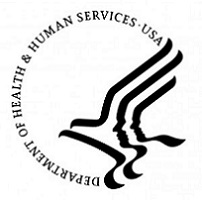 Rule Adds Patient Protections Against Surprise Medical Billing and Outlines the Process for Health Insurance Issuers and Providers to Determine Costs Under the No Surprises Act
Rule Adds Patient Protections Against Surprise Medical Billing and Outlines the Process for Health Insurance Issuers and Providers to Determine Costs Under the No Surprises Act
The Biden-Harris Administration, through the Departments of Health and Human Services (HHS) (@HHSGov), Labor (DOL), Treasury (collectively, the Departments), and the Office of Personnel Management (OPM) issued an interim final rule with comment period to further implement the No Surprises Act – a consumer protection law that helps curb the practice of surprise medical billing.
This rule details a process that will take patients out of the middle of payment disputes, provides a transparent process to settle out-of-network (OON) rates between providers and payers, and outlines requirements for health care cost estimates for uninsured (or self-pay) individuals. Other consumer protections in the rule include a payment dispute resolution process for uninsured or self-pay individuals. It also adds protections in the external review process so that individuals with job-based or individual health plans can dispute denied payment for certain claims.
“No one should have to go bankrupt over a surprise medical bill,” said HHS Secretary Xavier Becerra. “With today’s rule, we continue to deliver on President Biden’s Competition Executive Order by promoting price transparency and exposing inflated health care costs. Our goal is simple: giving Americans a better deal from a more competitive health care system.”
This rule is the third in a series by the Departments and OPM implementing the No Surprises Act, a bipartisan consumer protection law, which the Biden-Harris Administration directed HHS to prioritize and implement as part of the Executive Order on Promoting Competition in the American Economy. In early September, the Departments and OPM issued a rule to help collect data on the air ambulance provider industry, in addition to a rule in July on consumer protections against surprise billing. Collectively, these rules take effect January 1, 2022, and ban surprise billing for emergency services, as well as certain non-emergency care provided by OON providers at in-network facilities, and limit high OON cost-sharing for emergency and non-emergency services for patients.
The rule builds on this work and details how the total payment to an OON provider or facility will be determined.
“Price transparency is a reality in almost every aspect of our lives except health care,” said CMS Administrator Chiquita Brooks-LaSure. “The Biden-Harris Administration is committed to changing this. With today’s final rule, we are requiring health care providers and health care facilities to provide uninsured patients with clear, understandable estimates of the charges they can expect for their scheduled health care services.”
The Departments will certify independent dispute resolution entities to conduct payment determinations on a rolling basis. Entities interested in becoming certified by January 1, 2022, should submit their applications by November 1, 2021.
To find fact sheets on today’s rule, visit:
- Requirements Related to Surprise Billing Part II IFR with comment period.
- What you Need to Know about the Biden-Harris Administration’s Actions to Prevent Surprise Billing
The Departments are also releasing the Calendar Year 2022 Fee Guidance for the Federal Independent Dispute Resolution Process Under the No Surprises Act – PDF. This guidance provides the allowable fees certified independent dispute resolution entities will be able to charge in 2022, as well as the administrative fee that parties to a dispute must pay to access the federal independent dispute resolution process.
To receive updates on the federal independent dispute resolution process, including information on the certification of independent dispute resolution entities, sign up or access your subscriber preferences at the “No Surprises Act Dispute Resolution” email list.
